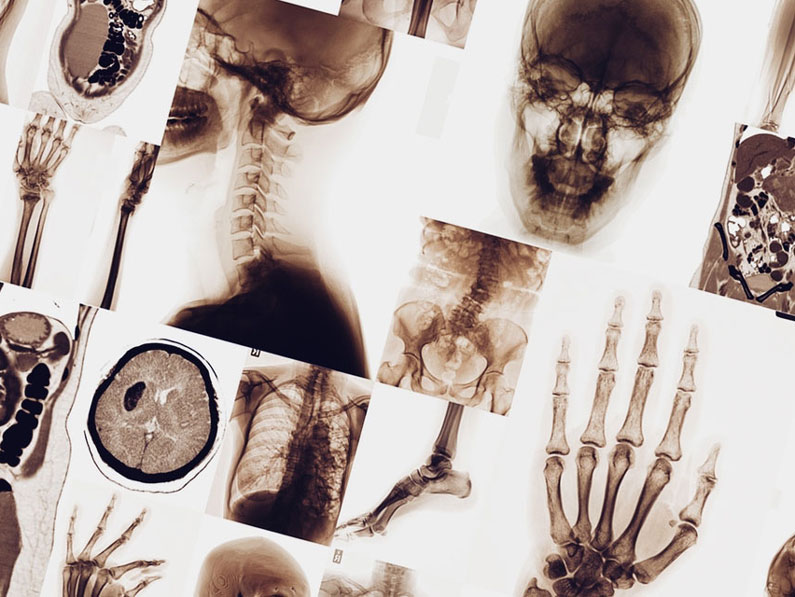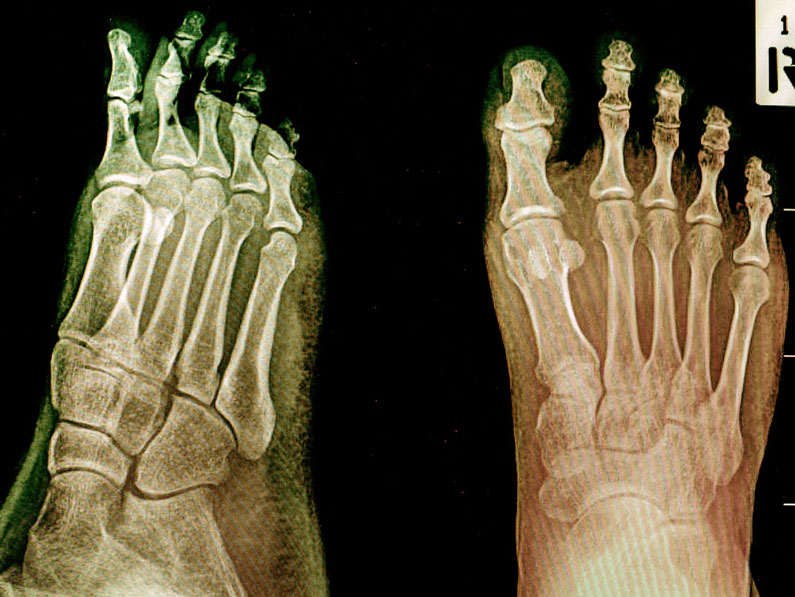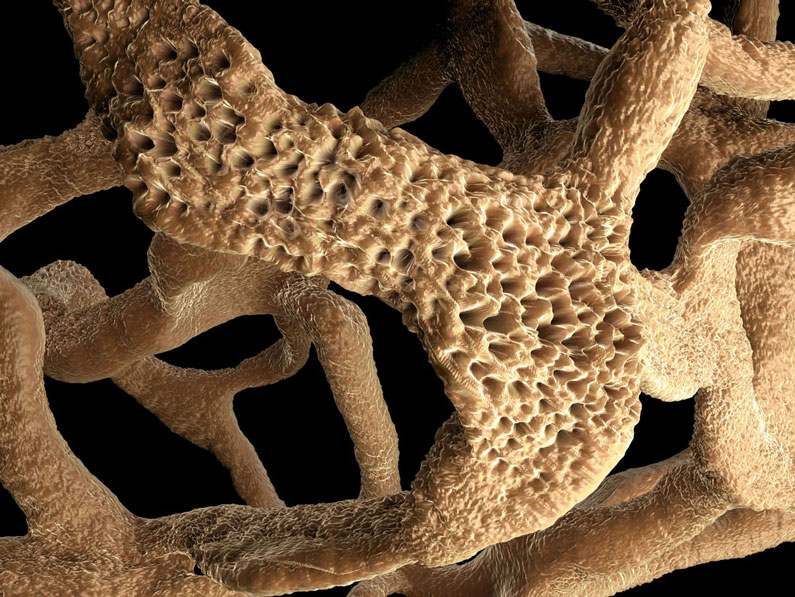
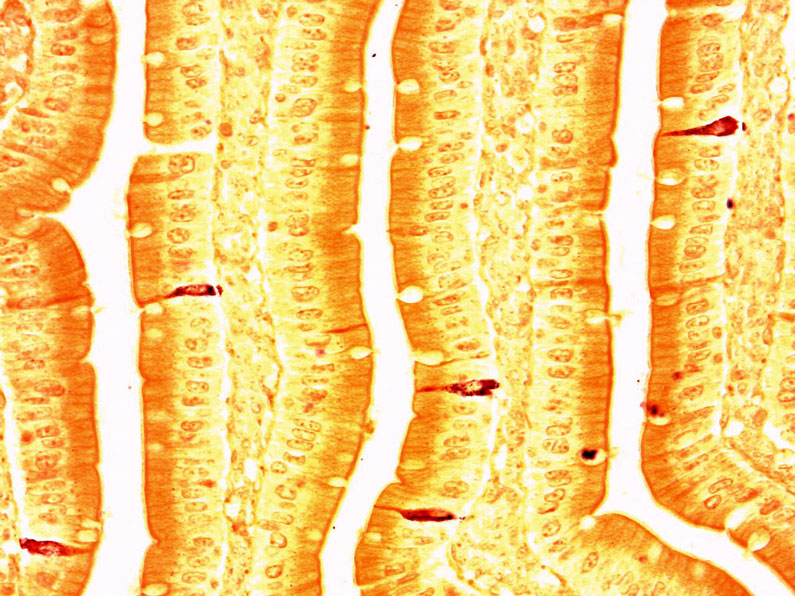
The Disease
Inflammatory Bowel Disease (IBD) can be Crohn’s disease or ulcerative colitis – two serious, chronic diseases directly affecting the digestive system causing intestinal tissue to become inflamed, form sores, and bleed easily. The incidence of IBD is rising in developing countries around the world and approximately 5 million people worldwide are currently affected by a form of IBD.
This chronic condition is without a medical cure and commonly requires a lifetime of care. With the advent of monoclonal antibodies for use in IBD there has been a breakthrough in disease management while many more biologics are in the pipeline. Currently the global market is estimated at $16 billion and this is set to continue to rise.
Our Preclinical Testing Tools
Biomedcode offers services of preclinical drug efficacy evaluation of therapeutics using spontaneous and induced mouse models of inflammatory bowel disease (IBD).
Mouse TNF driven Crohn's like pathology
TNF ΔΑRE+/- is a mouse mutant with defective post transcriptional regulation of endogenous TNF. Deregulated TNF expression leads to the gradual development of spontaneous inflammatory polyarthritis and inflammatory bowel disease. TNF ΔΑRE+/- mice crossed to hTNFR1KI mice yield TNF ΔARE/hTNFR1KI, a dual disease model with humanized TNFR1, that offers the opportunity to test anti-hTNFR1 biologics efficacy in direct comparison to Etanercept, that blocks mouse TNF and efficaciously treats TNF ΔΑRE pathologies .
Human TNF dependent DSS colitis
Administration of Dextran Sodium Sulfate (DSS) in drinking water induces intestinal inflammation probably due to the disruption of the intestinal epithelial monolayer lining, allowing the entry of luminal bacteria and associated antigens into the mucosa and leading to the dissemination of proinflammatory intestinal contents into underlying tissue causing a pathology closely resembling human Inflammatory Bowel Disease.
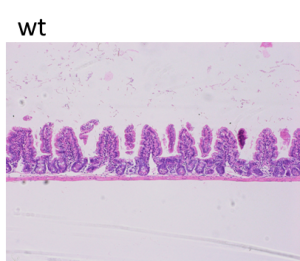
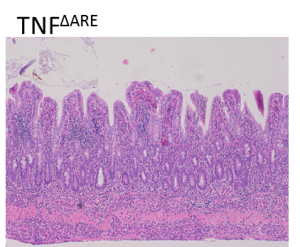
Read-Out Parameters
Body weight change
Histopathological evaluation of ileum or colon sections
Ex vivo colon tissue culture and local cytokine levels measurement
Platform validation
TNFΔARE/+/hTNFR1KI mice are treated and monitored from 8 weeks of age for 4-8 weeks.
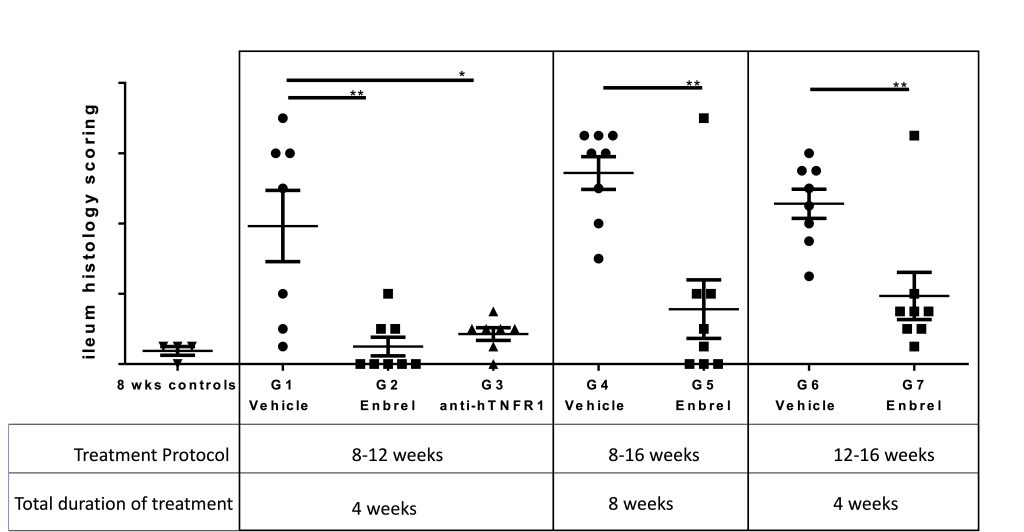
DSS colitis is an acute disease model of 2 weeks duration induced in hTNF transgenic mice.
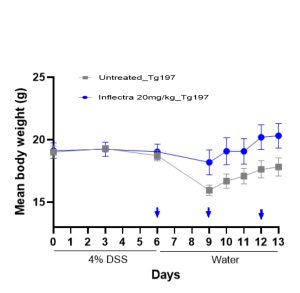
Competitive Advantage
TNFΔARE/+ mice reliably model human Crohn’s pathology and offer a unique combination of co-manifested pathologies including arthritis, IBD and heart valve pathology that share common aetiopathogenic mechanisms.
DSS colitis in hTNF transgenic mice offer a unique model of colitis pathology with significant TNF involvement.

